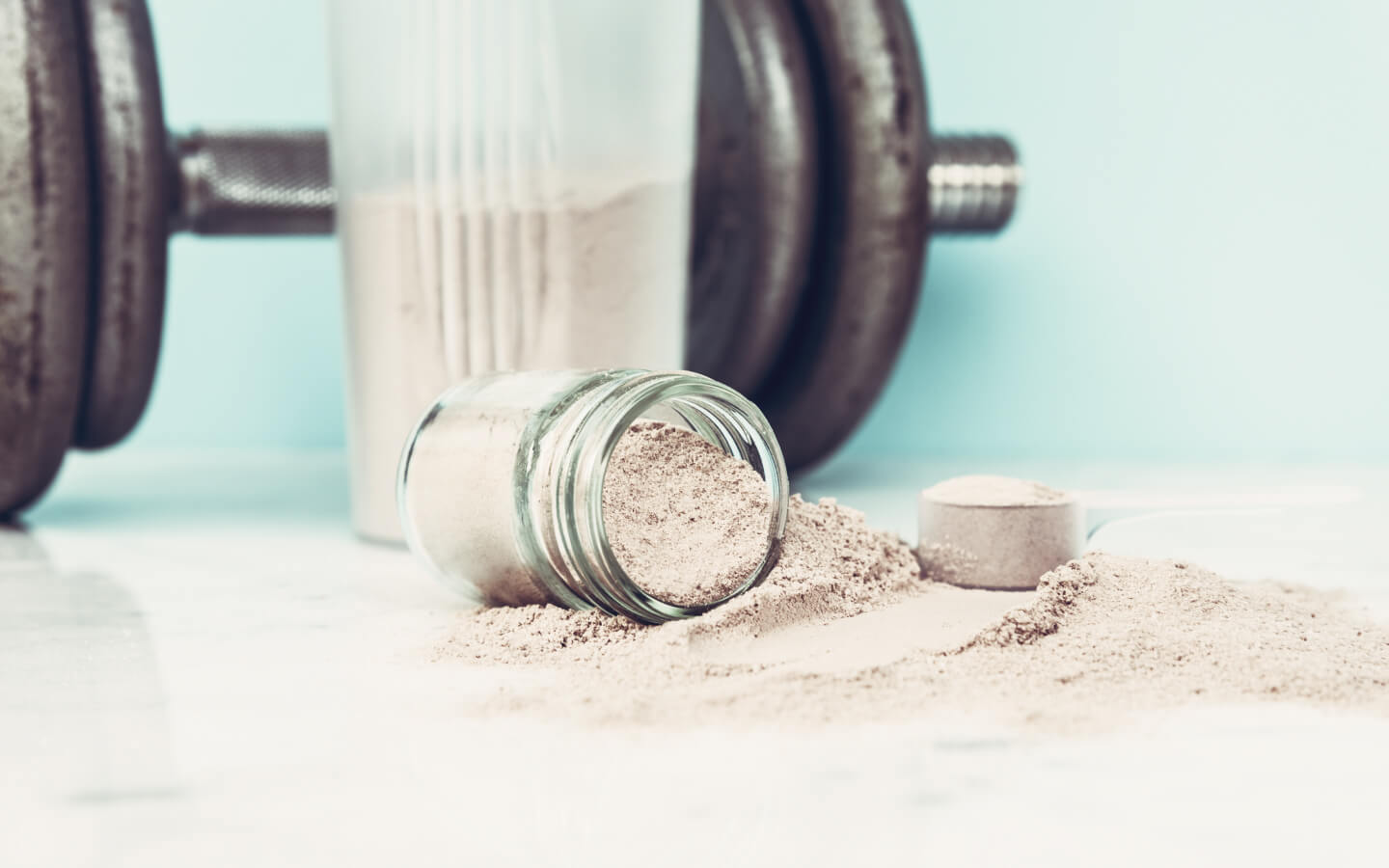The fitness and health industry is booming.
This is why products such as protein powder or protein bars can now also be found in many supermarkets. The studios themselves also sell the products, sometimes with high profit margins.
However, Professor Dr. Dr. Christine Graf of the German Sport University Cologne at the Institute for Movement and Neuroscience doubts the effectiveness of this extra food: "In science, whey has currently proven to be a particularly beneficial protein for muscle building. "Dietary supplements that are taken separately have not shown any scientific benefit."
A calculation example shows how it can be done without protein powder
If you want to build muscle, you should make sure you consume 1.6-1.7 grams of protein per kilogram of body weight per day. The requirement can also be met with low-fat milk. If you weigh around 75 kilograms, you need around 124 grams of protein a day. One liter of milk already contains 35 grams of protein. A 500 gram cup of low-fat quark contains 67.5 grams. The missing 21.5 grams can be obtained from meat or pulses, for example.
Which protein is the best?
Many foods contain proteins - many athletes are familiar with the technical terms soy protein, hemp protein or whey protein. In science, whey has proven to be the best protein for building muscle. The reason for this is probably the proportion of branched-chain amino acids.
Too much protein is harmful
If you consume too much protein over a long period of time, you can damage your kidneys. There is a risk of kidney stones forming. Increased protein intake affects our calcium balance because more calcium is excreted. But it is an important component of our bones. The simplest precaution here is to only consume protein from natural foods. It is then extremely difficult to overdose.
The time is also important
Our body utilizes protein best in the morning or in the time window of one hour before and after training, the so-called anabolic window.
